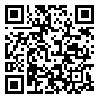1. Pour vakhshoori N, Pasha A, Ghanbari A, Atrkar Roshan Z. [Relationship between Self-efficacy and Health Behaviors of Faculty Members of Guilan University of Medical Science]. Iran Journal of Nursing. 2011; 24 (70): 39-48.
2. Mo PK, Winnie WSM. The influence of health promoting practices on the quality of life of community adults in Hong Kong. Social indicators research. 2010;95(3):503-17. [
DOI:10.1007/s11205-009-9523-9]
3. Mohammad-Alizadeh-Charandabi S, Mirghafourvand M, Tavananezhad N, Karkhaneh M. [Health promoting lifestyles and self-efficacy in adolescent boys]. Journal of Mazandaran University of Medical Sciences. 2014;23(109):152-62.
4. Mazloomi MS, Fazelpour S, Askarshahi M. [Health-Promoting Behaviors and Psychosocial Well-Being of University Shahid Sadoqi Yazd Academic Staff in Iran]. Journal of ilam university of medical sciences. 2013; 21 (3) :12-21. Persian
5. Norouzinia R, Aghabarari M, Kohan M, Karimi M. [Health promotion behaviors and its correlation with anxiety and some students' demographic factors of Alborz University of Medical Sciences]. Journal of Health Promotion Management. 2013;2(4):39-49.
6. Fayazbakhsh A, Khajeh KR, Soleymani NM, Rahimi F, Jahangiri L, Heydari S, et al. [The Internet Using and Health: Students'knowledge, Attitude and Lifestyle Related to the Internet]. Hakim Research Journal.2011;14(2):96-105.
7. Chiou S-T, Chiang J-H, Huang N, Chien L-Y. Health behaviors and participation in health promotion activities among hospital staff: which occupational group performs better? BMC Health Serv Res. 2014;14(1):474. [
DOI:10.1186/1472-6963-14-474] [
PMID] [
PMCID]
8. Myers RE. Promoting healthy behaviors: how do we get the message across? Int J Nurs Stud. 2010;47(4):500-12. [
DOI:10.1016/j.ijnurstu.2009.11.017] [
PMID]
9. Bandura A. Perceived self-efficacy in cognitive development and functioning. Educ Psychol. 1993;28(2):117-48. [
DOI:10.1207/s15326985ep2802_3]
10. Sarkar U, Fisher L, Schillinger D. Is self-efficacy associated with diabetes self-management across race/ethnicity and health literacy? Diabetes Care. 2006;29(4):823-9. [
DOI:10.2337/diacare.29.04.06.dc05-1615] [
PMID]
11. Kaewthummanukul T, Brown KC. Determinants of employee participation in physical activity: critical review of the literature. AAOHN J. 2006;54(6):249-61. [
DOI:10.1177/216507990605400602] [
PMID]
12. Morowatisharifabad MA, Ghofranipour F, Heidarnia A, Ruchi GB, Ehrampoush MH. [Self-efficacy and health promotion behaviors of older adults in Iran]. Social Behavior and Personality: an international journal. 2006;34(7):759-68. [
DOI:10.2224/sbp.2006.34.7.759]
13. Baheiraei A, Mirghafourvand M. Health promotion: from concepts to practice. Tehran: Noor-e-Danesh; 2011. [
PMCID]
14. Walker SN, Sechrist KR, Pender NJ. The health-promoting lifestyle profile: development and psychometric characteristics. Nurs Res. 1987;36(2):76-81. [
DOI:10.1097/00006199-198703000-00002] [
PMID]
15. Taymoori P, Moeini B, Lubans D, Bharami M. [Development and psychometric testing of the Adolescent Healthy Lifestyle Questionnaire]. J Edu Health Promot 2012; 1(20): 1-7. [
DOI:10.4103/2277-9531.99221]
16. Sherer M, Maddux JE, Mercandante B, Prentice-Dunn S, Jacobs B, Rogers RW. The self-efficacy scale: Construction and validation. Psychol Rep. 1982;51(2):663-71. [
DOI:10.2466/pr0.1982.51.2.663]
17. Purtaghi G, Pakpour A. [Happiness, self-efficacy and academic achievement among students of baqiyatallah university of medical sciences]. Journal of medical education development. 2014;7(13):45-56.
18. Moradi A, Shojaizade D. [A Survey on Healthy Lifestyle of Health Care Workers in Andimeshk]. Toloo e behdasht. 2016; 14 (5):38-49.
19. Zhang S-c, Wei C-n, Fukumoto K, Harada K, Ueda K, Minamoto K, et al. A comparative study of health-promoting lifestyles in agricultural and non-agricultural workers in Japan. Environ Health Prev Med. 2011;16(2):80-9. [
DOI:10.1007/s12199-010-0167-9] [
PMID] [
PMCID]
20. Yu K, Bi J, Huang Y, Li F, Cheng J, Wang T, et al. Relationship between health-promoting lifestyle and sub-health status in the employees of an enterprise. Nan fang yi ke da xue xue bao= Journal of Southern Medical University. 2013;33(8):1203-6.
21. McElligott D, Siemers S, Thomas L, Kohn N. Health promotion in nurses: is there a healthy nurse in the house? Appl Nurs Res. 2009;22(3):211-5. [
DOI:10.1016/j.apnr.2007.07.005] [
PMID]
22. Mahmoodi H, Hasanpoor E, Zareipour M, Housaenpour H, Sharifi-Saqqezi P, Babazadeh T. [Compare the Health Promoting Behaviors among Nurses, Health and Administrative Staff]. Iran Journal of Nursing. 2016;29(99):56-65.
23. Ulla Díez SM, Pérez-Fortis A. Socio-demographic predictors of health behaviors in Mexican college students. Health promotion international. 2009;25(1):85-93. [
DOI:10.1093/heapro/dap047] [
PMID]
24. Beser A, Bahar Z, Büyükkaya D. Health promoting behaviors and factors related to lifestyle among Turkish workers and occupational health nurses' responsibilities in their health promoting activities. Ind Health. 2007;45(1):151-9. [
DOI:10.2486/indhealth.45.151] [
PMID]
25. Chang LC. Health literacy, self‐reported status and health promoting behaviours for adolescents in Taiwan. J Clin Nurs. 2011;20(1‐2):190-6. [
DOI:10.1111/j.1365-2702.2009.03181.x] [
PMID]
26. Sarkar U, Fisher L, Schillinger D. Is self-efficacy associated with diabetes self-management across race/ethnicity and health literacy? Diabetes Care. 2006;29(4):823-9 [
DOI:10.2337/diacare.29.04.06.dc05-1615] [
PMID]






